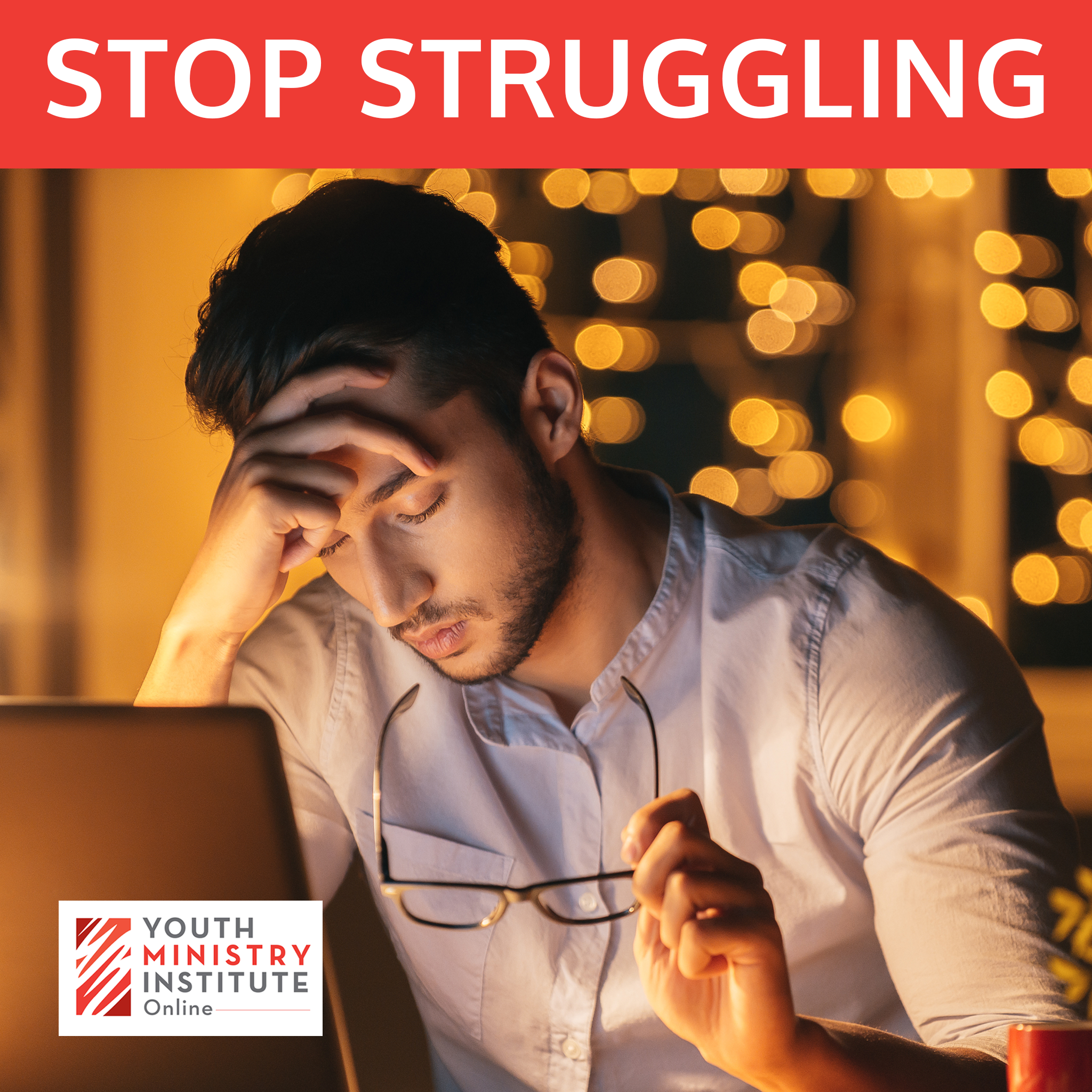Grief In Times Of Trauma

In part one, Dealing With Grief, we discussed how we can understand grief. As we move into part two of dealing with grief, one question I often get from caregivers is “What do I do for people who are wallowing in their grief?”
While I appreciate the question as it comes from a place of caring, I am cautious of what prompts it. It is always hard to watch someone you care about go through a process in which you can do nothing to stop or ease. However, the discomfort that we feel when watching someone else grieve is more connected to our own grief than to theirs.
From an early age, we see people relate their own emotions to others. In youth ministry, you have to look no further than a middle school small group.
Typically, one student will share, prompting another one to do so. From the outside, it may seem that the stories are in no way related, which may bring some to the conclusion that the students just want to tell their own stories and not listen to that of others. This is not the case. Something, somewhere in the first story, was an emotion triggered for the second storyteller. You as the observer don’t have to understand it or make the connection, but the connection is there for the story sharers.
Our Own Pain
When we see someone in grief, we feel our own pain engage. Pain is an emotion that the animal side of us tries to run from, even though it is the emotion from which we learn and grow the most. The animal instinct in us is a mandate to survive at all costs, which also includes staying away from pain. Our gut instinct is to avoid the pain we see in another person, no matter how much we love them.
Picture the person who loses someone dear to them. In the beginning, people are there, bringing food and what they think are comforting words. But eventually, everyone goes back to their lives and the person is left grieving still. Over time people in their lives begin to question them. They say well-meaning things like “Maybe it’s time to move on,” or “Get out and meet some new people.” The reality behind these well-meaning statements is that they are an attempt to keep the pain we see in that grieving person from touching our own lives.
Is it common? Yes.
Is it helpful to the person who is grieving? No, but the people perpetuating this cycle usually do not know they are doing it.
When we are not in touch with our own pain, we are less able to help others touch theirs.
In our current climate, it is natural to try to rush back to normal. How many times have we heard “When this is all over?” We do this because that is all we know, and we are grieving the loss of what we know.
As a people, we cannot comprehend what is to come “when this is all over” because we have yet to fully comprehend what “this” is. We are still discovering the lens through which we understand our circumstances, and that will take time.
For some people, the things they have lost during the COVID-19 Pandemic will not be apparent for some time. For others, even though they know what they lost or missed out on, they will not process that for a while. It is unreasonable to expect someone to fully engage in processing their grief during a time of trauma. Please understand, we are ALL in a time of trauma. The things happening in the world around us, in our communities, to our churches and to our households are TRAUMATIC.
We are experiencing collective trauma, while still trying to be as productive and essential as we always assumed we were. And also, trying to help everyone else hold it together. That’s a lot on one person, isn’t it?
I know you want to hear something simpler. I would love to give you something as concise as “5 ways to support someone who is grieving” or “3 ways you can tell if you are needed”. But honestly, it cannot be that simple, because people are not simple. Helping someone else during their grief takes time. Because grief is such a personal thing, both for the feeler and the caregiver, it is hard to give solid steps forward, but I can give you tips on things you can do, to the best of your ability.
Tips For Dealing With Grief
Acknowledge the loss. This can’t be overstated. Help people to form/learn/lookup/ try out the words to express their pain and loss. Name it. Acknowledge it. Let them feel it.
Do not use the phrase “at least”. Someone’s pain is not ever more or less hard than someone else’s. I have heard people who lost jobs say things like, “At least no one I know has died from this.” But to compare loss like that is an impossible task and is based on an incorrect premise. It is based on the premise that loss or pain has a finite amount. It implies that we can put our pain on a scale and rate it according to all the pain in the world. Which is a ridiculous endeavor, because we have never felt the pain of all the rest of the world. Pain is not finite in the amount that can be felt. It does not take away or cheapen the pain someone else feels about their loss for me to also feel pain.
Do not compare, and encourage them to not compare. See above.
Be realistic about your own limits. No one can be 100% helpful all of the time. It is also not appropriate to be someone’s only source of support or help in crisis. Give yourself a break. Let someone caretake for you.
Understand what frustration and anger mean. You will see it in them, and you will see it in yourself. Anger is an important emotion for us to pay attention to right now, because anger is a protective emotion, and it is not usually primary. This means that anger creeps in when it is needed to protect another emotion or vulnerability. Instead of asking, “Why are you (Why am I) so angry?” maybe try asking “What is this anger protecting you (me) from? What is being threatened in this instance?”
There is no guidebook to a pandemic. None of us has done this before, which also means that none of us has ever ministered to people during a pandemic. Be gracious to yourself and those around you. You can give credit to someone’s feelings without sacrificing your own.
Being in touch with your emotions and knowing your own relationship to pain and grief will make your time ministering to those who grieve more meaningful. It may provoke a deeper healing process for both the person you are ministering to, and for you.

Chris has served at First Church Coral Springs as the Director of Student Ministries for 8 years. He is a graduate from Dallas Theological Seminary with his Masters in Christian Education and a Youth Ministry Institute Alumnus. He is passionate about discipling young people to become future leaders in the church.


We Would Love to Hear Your Thoughts